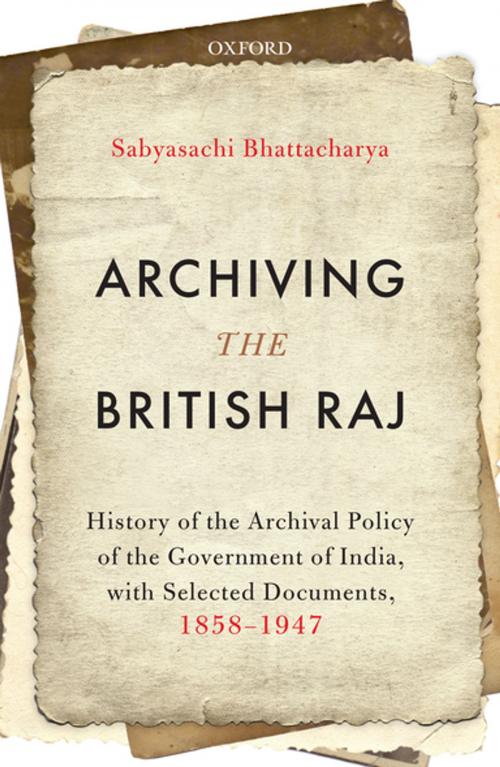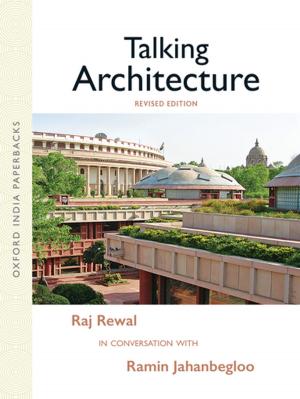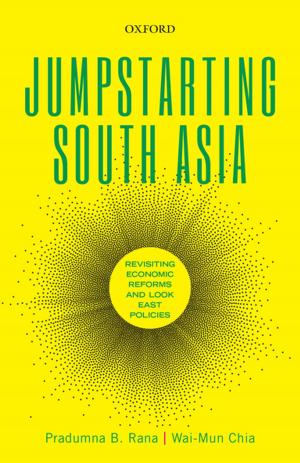Archiving the British Raj
History of the Archival Policy of the Government of India, with Selected Documents, 1858–1947
Nonfiction, History, Asian, India, Modern| Author: | Sabyasachi Bhattacharya | ISBN: | 9780199095582 |
| Publisher: | OUP India | Publication: | October 18, 2018 |
| Imprint: | OUP India | Language: | English |
| Author: | Sabyasachi Bhattacharya |
| ISBN: | 9780199095582 |
| Publisher: | OUP India |
| Publication: | October 18, 2018 |
| Imprint: | OUP India |
| Language: | English |
The archives are generally sites where historians conduct research into our past. Seldom are they objects of research. Sabyasachi Bhattacharya traces the path that led to the creation of a central archive in India, from the setting up of the Imperial Record Department, the precursor of the National Archives of India, and the Indian Historical Records Commission, to the framing of archival policies and the change in those policies over the years. In the last two decades of colonial rule in India, there were anticipations of freedom in many areas of the public sphere. These were felt in the domain of archiving as well, chiefly in the form of reversal of earlier policies. From this perspective, Bhattacharya explores the relation between knowledge and power and discusses how the World Wars and the decline of Britain, among other factors, effected a transition from a Eurocentric and disparaging approach to India towards a more liberal and less ethnocentric one.
The archives are generally sites where historians conduct research into our past. Seldom are they objects of research. Sabyasachi Bhattacharya traces the path that led to the creation of a central archive in India, from the setting up of the Imperial Record Department, the precursor of the National Archives of India, and the Indian Historical Records Commission, to the framing of archival policies and the change in those policies over the years. In the last two decades of colonial rule in India, there were anticipations of freedom in many areas of the public sphere. These were felt in the domain of archiving as well, chiefly in the form of reversal of earlier policies. From this perspective, Bhattacharya explores the relation between knowledge and power and discusses how the World Wars and the decline of Britain, among other factors, effected a transition from a Eurocentric and disparaging approach to India towards a more liberal and less ethnocentric one.















